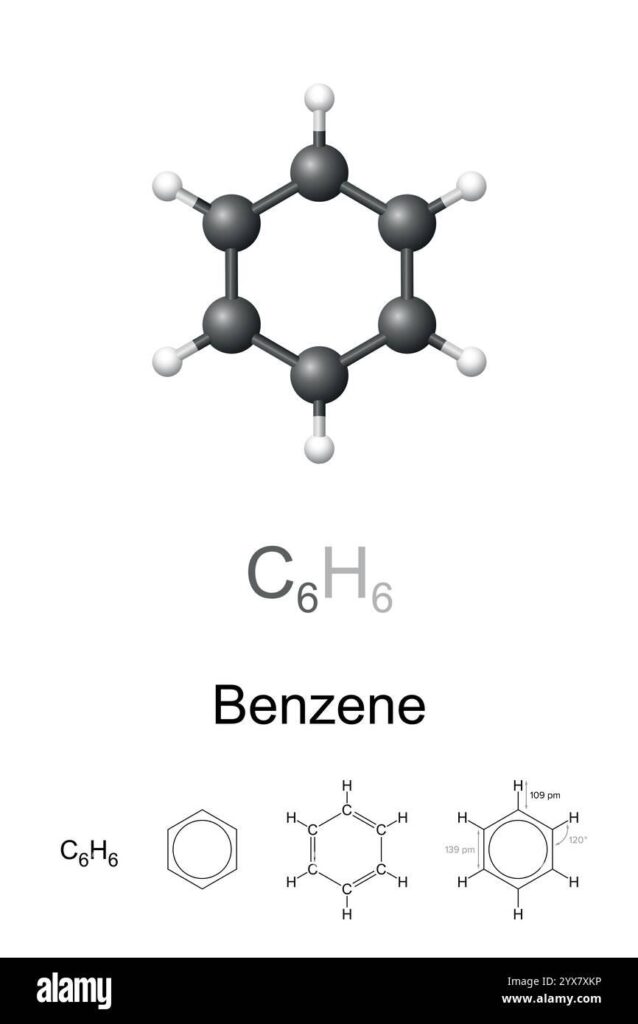In a significant move that signals its increasing influence in the global commodities market, China has officially approved the trading of benzene futures and options on the Dalian Commodity Exchange. This landmark decision, reported by Yicai Global, is poised to enhance price transparency and trading opportunities in the vital petrochemical sector. Benzene, a key industrial chemical used in the production of plastics, resins, and synthetic fibers, has long been a critical component of China’s burgeoning chemical industry. By launching these financial instruments, Chinese regulators aim to better manage price volatility and foster more sophisticated risk management strategies among domestic and international traders. With this strategic shift, China is not only looking to solidify its position as a leading player in the global market but also to provide a new benchmark for benzene pricing that could ripple across industries worldwide.
China Introduces Benzene Futures and Options on Dalian Exchange
The Dalian Commodity Exchange has officially launched trading for benzene futures and options, a significant move aimed at bolstering the country’s chemical market. This new financial instrument will offer market participants a platform to hedge against price volatility and gain exposure to the benzene sector, which plays a crucial role in various industries including plastics, resins, and synthetic fibers. The initiative reflects China’s ongoing efforts to diversify its financial markets and create a more stable trading environment for crucial commodities.
Market analysts anticipate that the introduction of benzene futures and options will encourage greater transparency and liquidity in the petrochemical markets. With benzene prices often influenced by fluctuating oil prices and global demand dynamics, having the ability to trade these derivatives will empower manufacturers and investors alike. Key benefits of this new instrument include:
- Risk Management: Companies can hedge their exposure to fluctuating benzene prices, ensuring more predictable costs.
- Price Discovery: Enhanced trading volume may lead to more accurate pricing mechanisms within the market.
- Increased Participation: By enabling a wider range of participants to engage in the market, the initiative aims to stimulate trading activities.
Impact of Benzene Futures on Global Chemical Markets
The introduction of benzene futures on the Dalian Commodity Exchange marks a significant shift in the global chemical markets. As one of the essential building blocks in the production of various chemicals, including plastics and synthetic fibers, benzene’s listing will likely enhance price transparency and risk management for market participants worldwide. This move is expected to influence several key areas:
- Price Discovery: Traders and manufacturers can now better hedge against price volatility, allowing for more strategic sourcing and production decisions.
- Market Participation: Increased access to futures trading may attract more stakeholders, ranging from producers to end-users, thus deepening the liquidity of benzene markets.
- Global Influence: As China continues to strengthen its role in the global commodities arena, the pricing dynamics established in Dalian could set benchmarks that resonate across international markets.
Furthermore, the development of benzene futures could lead to potential shifts in supply chains and trading dynamics. Major chemical producers may adjust their procurement strategies in response to more granular pricing data, while emerging markets could leverage these futures to stabilize their own production costs. A summary of potential impacts includes:
| Impact Area | Description |
|---|---|
| Increased Volatility | Initial market reactions may lead to sharper price movements as traders adjust to new information. |
| Regional Prices | Benzene pricing in Asia may become more competitive against North American and European benchmarks. |
Strategies for Investors Amid China’s New Trading Opportunities
With the recent approval of benzene futures and options on the Dalian Exchange, investors have a pivotal opportunity to diversify their portfolios in the dynamic Chinese market. By exploring these new trading instruments, investors can gain exposure to the volatile petrochemical sector, which is crucial for a wide range of industries including automotive and plastics. Key strategies to consider include:
- Hedging Against Price Fluctuations: Utilizing benzene futures can help mitigate risks associated with price volatility, allowing investors to lock in costs and protect their margins.
- Market Analysis: Conducting thorough research and analysis on benzene’s demand and pricing trends is essential. Understanding the factors influencing the petrochemical market will enable investors to make informed decisions.
Additionally, investors should keep an eye on macroeconomic indicators and government policies that may impact the markets. Collaboration with local experts and analysts can provide invaluable insights. Here are some factors to watch:
| Factor | Importance |
|---|---|
| Domestic Demand | High – Drives benzene consumption |
| Global Oil Prices | Medium – Influences production costs |
| Regulatory Changes | High – Can impact trading regulations and tariffs |
By incorporating these strategies and staying informed on relevant market conditions, investors can effectively navigate the evolving landscape of benzene trading, capitalizing on potential growth opportunities while managing risks associated with commodities trading.
In Retrospect
In conclusion, the launch of benzene futures and options on the Dalian Commodity Exchange marks a significant step for China’s commodity markets. With the government’s endorsement of these financial instruments, market participants can look forward to enhanced risk management tools and increased market liquidity in the petrochemical sector. As players in the domestic and international markets navigate the complexities of benzene pricing and global supply chains, the Dalian Exchange’s latest offerings could redefine trading dynamics in this crucial industry. Analysts will be closely monitoring the impact of these developments on China’s broader energy landscape and their implications for global markets. As the trading commences, all eyes will be on the Dalian Exchange to witness how these new financial products evolve and influence the future of benzene and related commodities.
